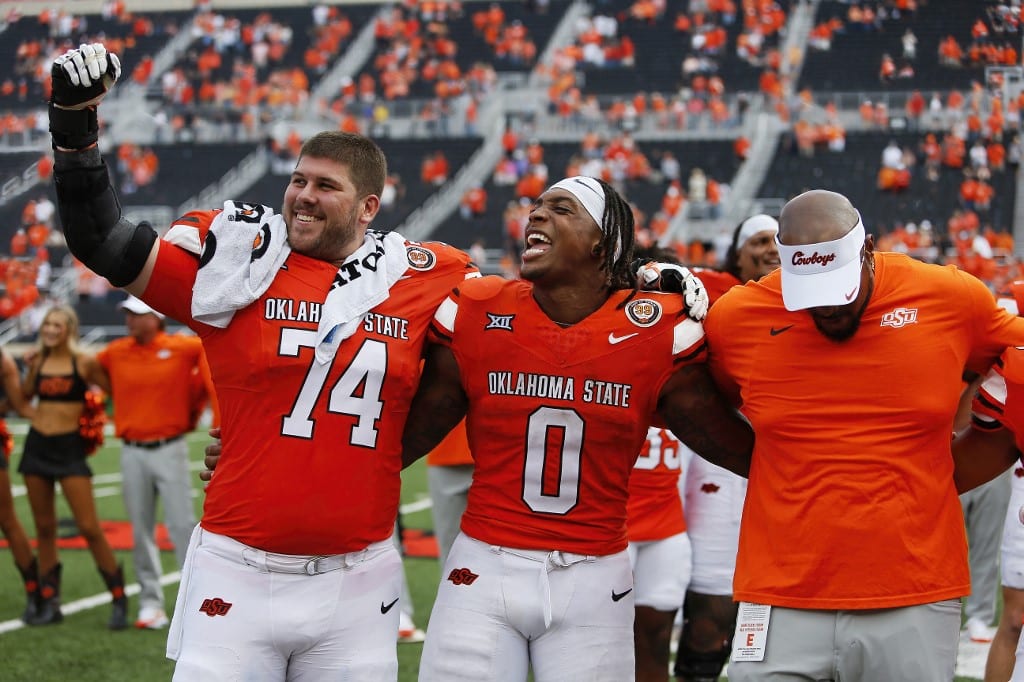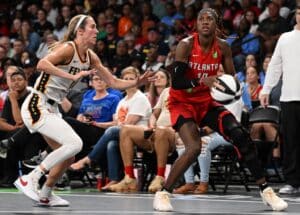
It has been a whirlwind legislative session regarding Oklahoma sports betting bills, but the latest development shows that two mobile gaming measures passed another hurdle, keeping the door open for eventual passage.
Hope Springs Eternal
Proponents of legalized mobile and retail sports betting in Oklahoma were cautiously optimistic after the Senate’s Business and Insurance Committee approved two sports betting measures, both sponsored by Representative Ken Luttrell.
The bills in question are HB 1047 and HB 1101, with the latter serving as an insurance policy if the former does not pass. HB 1101 calls for a voter referendum on sports betting should HB 1047 stall.
Satisfying the many stakeholders in Oklahoma is problematic due to the state’s gaming tribes demanding that they be allowed mobile sports betting exclusivity, while Governor Kevin Stitt has been resolute in his desire to open the market up to third-party platform providers like Caesars, DraftKings, FanDuel, et al.
“Some of the bills that you’re seeing come through, which I’m not supporting, and I would absolutely veto any of the bills that hit my desk, are exclusively giving a monopoly to the tribes. It’s not transparent. It’s not a fair deal; not everybody could do it,” Governor Stitt said earlier this year.
Representative Luttrell’s HB 1047 allows for an amendment to the Model Tribal Gaming Compact that would grant the tribes a sports betting monopoly in exchange for a 10% tax on their sports betting revenues. It would also maintain public funding of $20,833 per month for problem gambling resources.
Opportunity Lost
As of this writing, 39 US states have passed sports betting legislation, and as that number grows, those states that have yet to do so begin jealously eyeing the revenue that their residents are putting in the pockets of neighboring states by crossing the border and betting with them legally.
Such is the case in Oklahoma, as bordering states including Arkansas, Colorado, Kansas, and New Mexico have all launched sports betting, with Missouri poised to do so in September or October of this year. Sports betting supporters contend that all that money is being lost to its neighbors.
However, should Oklahoma join the vast majority of the nation in launching its own sports betting industry, it would mean $50 million to $60 million per year for the state’s tax coffers, according to State Senator Dave Rader.
“If some of our citizens are asking for it and going across the state line to do this, we should do something to keep those dollars in our state,” said Senator Rader, a former quarterback for the University of Tulsa in the late 70s.
Tribal Involvement
Oklahoma Indian Gaming Association chairman Matthew L. Morgan released a statement last week, stating, “The Oklahoma Indian Gaming Association (OIGA) continues to closely monitor legislation impacting our industry on behalf of our members, including the bills that passed out of the Senate committee yesterday with their titles stricken.”
Although the recent developments for the two bills are encouraging, it should be noted that several attempts, including many this session, have all failed to make it across the legislative finish line.
Moreover, Governor Stitt is unlikely to change his mind about supporting any bill that would give a sports betting monopoly to the state’s gaming tribes. Therefore, a voter referendum may be the only solution as long as Stitt remains in office.







